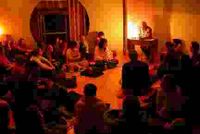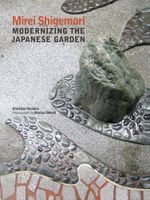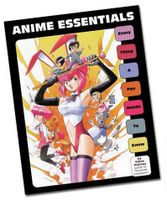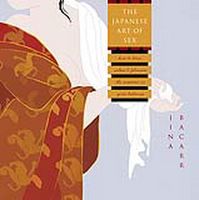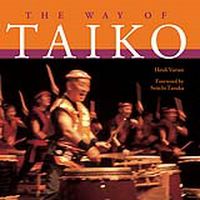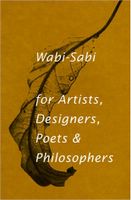Stone Bridge Press, publisher of books about Japan, will release eight titles in Fall 2005. The Fall Season covers music, spirituality, design, fiction, poetry and Asian studies, plus the paperback version of Donald Richie’s personal journals and the latest book by Leonard Koren.
SEPTEMBER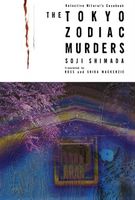 The Tokyo Zodiac Murders: Detective Mitarai's Casebook
The Tokyo Zodiac Murders: Detective Mitarai's Casebookby Soji Shimada, Translated by Ross & Shika MacKenzie. 252 pages, US$22.95
This is the first book by mystery master Soji Shimada ever translated into English! The book that launched Shimada's mystery novel career, The Tokyo Zodiac Murders introduces self-styled detective Kiyoshi Mitarai who in one week must solve a series of murders that have baffled Japan for forty years. With maps, charts and other illustrations, Shimada challenges you to solve the mystery before Detective Mitarai. The Japan Times called the book "Intricately constructed and entertainingly exotic."
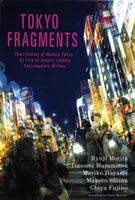 Tokyo Fragments: Short Stories of Modern Tokyo by Five of Japan's Leading Contemporary Writers
Tokyo Fragments: Short Stories of Modern Tokyo by Five of Japan's Leading Contemporary Writersby Ryuji Morita, Tomomi Muramatsu, Mariko Hayashi, Makoto Shiina, and Chiya Fujino, Translated by Giles Murray. 206 pages, US$19.95
Tokyo is far more than streets and skyscrapers full of gray-suited businessmen, super-trendy teenagers, and schoolgirls in sailor-suit uniforms. Five of Japan's most popular contemporary fiction writers present their vision of life in different quarters of Japan's capital. From Tokyo's mean streets to its bars and elegant cafes, here are stories that measure the pulse of the city while dissecting its heart. These five stories break down the metropolis into fragments of experience that anyone can relate to and enjoy. It is also the chance to sample these leading Japanese authors whose work has never before appeared in English.
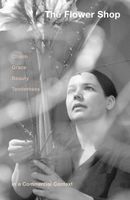 The Flower Shop: Charm, Grace, Beauty & Tenderness in a Commercial Context
The Flower Shop: Charm, Grace, Beauty & Tenderness in a Commercial Contextby Leonard Koren. 112 pages, $19.95
From the author of Wabi-Sabi, on the intersection of beauty and design. If beauty is defined as a quality encompassing both extraordinary sensoriality and exemplary human behavior, then possibly the most beautiful flower shop in the world is located in Vienna's low-key-but-hip 4th District. Blumenkraft (literally, "Flower Power") is a place of inspiration, refuge, and virtue that will inform and enlighten anyone involved in design and modern commerce. Mixing analysis, anecdote, and observation, Leonard Koren once again reveals the key principles of practical wisdom at work in the world. His concise and lucid text is illustrated by his own photographs.
 The Japan Journals: 1947 - 2004
The Japan Journals: 1947 - 2004by Donald Richie, Edited by Leza Lowitz. 510 pages, US$18.95
Following on the critical success of the
hardcover, this is the trade paperback edition of Richie's journals: a record of both a nation and evolving expatriate sensibility, providing insight on world-famous friends along with Tokyo's demimonde. This is not a mere recounting of daily details, but a literary tour de force, filled with insights into culture, art, and personality.
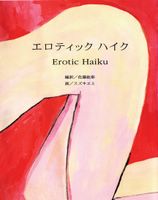 Erotic Haiku
Erotic Haikuby Hiroaki Sato with illustrations by Emi Suzuki. 112 pages, US$9.95
"
deserted beach—a bikini top rolls in on a wave." Short but sweet, haiku is one of the world's most pleasurable forms of poetry, and size definitely matters when haiku turns to erotic themes. By turns cheeky, brilliant, teasing
, sad, bitter, and lustful, these tiny poems (sometimes called "erotiku") submitted by numerous lovers (of poetry) pack an enormous erotic wallop. Each haiku appears in English and Japanese for maximum enjoyment, with playful pen and pencil drawings throughout. Best when read aloud, because after all, "
without clothes, it's a different conversation."
OCTOBER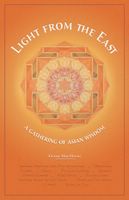 A Light from the East: A Gathering of Asian Wisdom
A Light from the East: A Gathering of Asian Wisdomby Frank MacHovec. 176 pages, US$16.95
The great spiritual traditions of Asia in a remarkably compact format... Included are Indian, Tibetan, and Zen Buddhism, Hinduism, Taoism, Yoga, T'ai Chi Ch'uan, Shinto, Confucianism, Feng Shui, and Falun Gong, with brief discussions and excerpts from key works like The Tibetan Book of the Dead and The Book of Five Rings, including the complete I Ching and The Book of Tao. Excellent for casual reading, classroom surveys, and for anyone wanting a broad view of how the Asian Ways complement and reflect each other. Easy to read yet comprehensive in an inexpensive package, this is the perfect "starter kit" for people interested in Asian religion and wisdom.
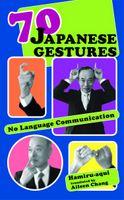 70 Japanese Gestures: No Language Communication
70 Japanese Gestures: No Language Communicationby Hamiru-aqui, Translated by Aileen Chang. 160 pages, US$9.95
Who needs to speak Japanese? There's a lot you can say with traditional hand gestures and body motions that are universal as well as uniquely Japanese. This whimsical look at "the language of no language" will teach you to hurl insults, flirt, agree, excuse yourself, cross the street, and even make promises—wordlessly! (And who is that stoic guy wearing a suit in all the photos?) Finally, a way to tell someone at a loud party, "Your underwear is showing," in four easy hand motions... This is a book for the serious student, the class clown, and the crazy guy at Akihabara Station hoping to communicate with Godzilla.
NOVEMBER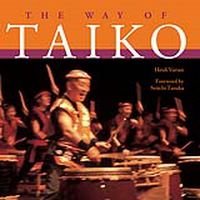 The Way of Taiko
The Way of Taikoby Heidi Varian, Foreword by Seiichi Tanaka. 128 pages, US$18.95
Taiko drumming is an ancient sacred practice in Japan, originally used to drive away pests from ricefields and then to call to the gods in thanks at harvest time. Today taiko in Japan and especially North America has evolved into a form of mental, physical, and martial arts training that combines rhythm, harmony, and movement. This book is for anyone who would like to try taiko or who is fascinated by the instruments, dances, and compositions of a typically powerful taiko performance. This book contains an introduction to taiko history as well as resources for students and fans.
